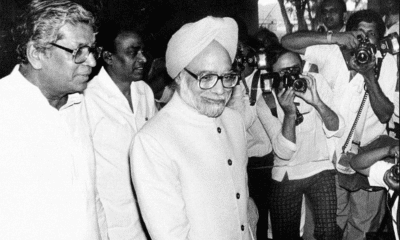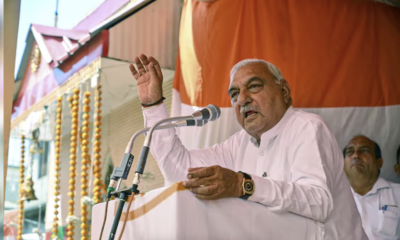News
Rahul Gandhi Criticizes PSBs for Burdening Common Citizens with Rs 8,500 Crore in Penalties
In a stark condemnation of the government’s banking policies, Congress leader Rahul Gandhi has highlighted the financial strain on ordinary citizens due to penalties levied by public sector banks (PSBs) for not maintaining minimum account balances. Recent data reveals that 12 PSBs have collectively amassed approximately Rs 8,500 crore in such penalties over the past five years.
A Financial Trap for the Common Man
Gandhi’s critique follows the disclosure of this information in the Lok Sabha, where MPs V Selvaraj, K Subbarayan, and Mala Roy sought clarity on the matter. Minister of State for Finance, Pankaj Chaudhary, confirmed that in the fiscal year 2023-24 alone, PSBs charged Rs 2,331 crore in penalties for non-maintenance of average monthly minimum balances.
The penalties vary across banks and regions. For instance, Punjab National Bank requires a minimum quarterly average balance (QAB) of Rs 2,000 in urban areas and Rs 500 in rural areas, with penalties ranging from Rs 100 to Rs 250 for non-compliance. Bank of Baroda imposes a quarterly penalty of Rs 250 for urban branches and Rs 125 for rural branches. On the other hand, the State Bank of India has waived such penalties since 2020, providing some relief to its customers.
Rahul Gandhi’s Stinging Rebuke
In a social media post, Rahul Gandhi expressed his dismay, stating, “In the Amritkaal of Narendra Modi, the ’empty pockets’ of common Indians are also being extracted. The government that waived off Rs 16 trillion of its industrialists has collected Rs 8,500 crore from poor Indians who are unable to maintain even the minimum balance.”
नरेंद्र मोदी के अमृतकाल में आम भारतीयों की ‘खाली जेब’ भी काटी जा रही है।
मित्र उद्योगपतियों के 16 लाख करोड़ माफ कर देने वाली सरकार ने ‘मिनिमम बैलेंस’ तक मेंटेन न कर पा रहे गरीब भारतवासियों से 8500 करोड़ रुपए वसूल लिए हैं।
‘जुर्माना तंत्र’ मोदी के चक्रव्यूह का वो द्वार है जिसके…
— Rahul Gandhi (@RahulGandhi) July 30, 2024
Rahul Gandhi likened the penalty system to the ‘chakravyuh’ from the Mahabharata, a complex military formation that entraps those who enter it. He suggested that the government’s policies are designed to financially cripple the common citizen. “The ‘penalty system’ is the door of Modi’s Chakravyuh through which an attempt is being made to break the back of the common Indian,” he asserted.
During a debate on the Union Budget 2024-25, Rahul Gandhi emphasized that the INDIA bloc would strive to dismantle this exploitative system. He advocated for legal guarantees for Minimum Support Price (MSP) and a comprehensive caste census to address socio-economic disparities.
Drawing parallels to the epic, Rahul Gandhi stated, “In the 21st century, another ‘chakravyuh’ has been prepared. It is in the form of a lotus and the prime minister (Narendra Modi) wears the symbol on his chest. What was done with Abhimanyu is being done with India, with its youth, women, farmers, and small and medium businesses.”
In response, BJP MP Anurag Thakur derided Gandhi’s remarks, labeling him an “accidental Hindu” and questioning his grasp of the Mahabharata. Thakur pointed out inaccuracies in Gandhi’s reference to the epic, asserting that seven warriors, not six, were involved in Abhimanyu’s demise. Thakur accused Gandhi of lacking knowledge about both the Constitution and the Mahabharata, thus undermining his credibility.
Rahul Gandhi’s critique underscores a significant issue: the financial burden imposed on ordinary citizens by punitive banking practices. While banks argue that maintaining a minimum balance is crucial for operational costs, the substantial penalties disproportionately affect low-income individuals, exacerbating their financial struggles. As the debate continues, it raises fundamental questions about the fairness and inclusivity of banking policies in India.












































